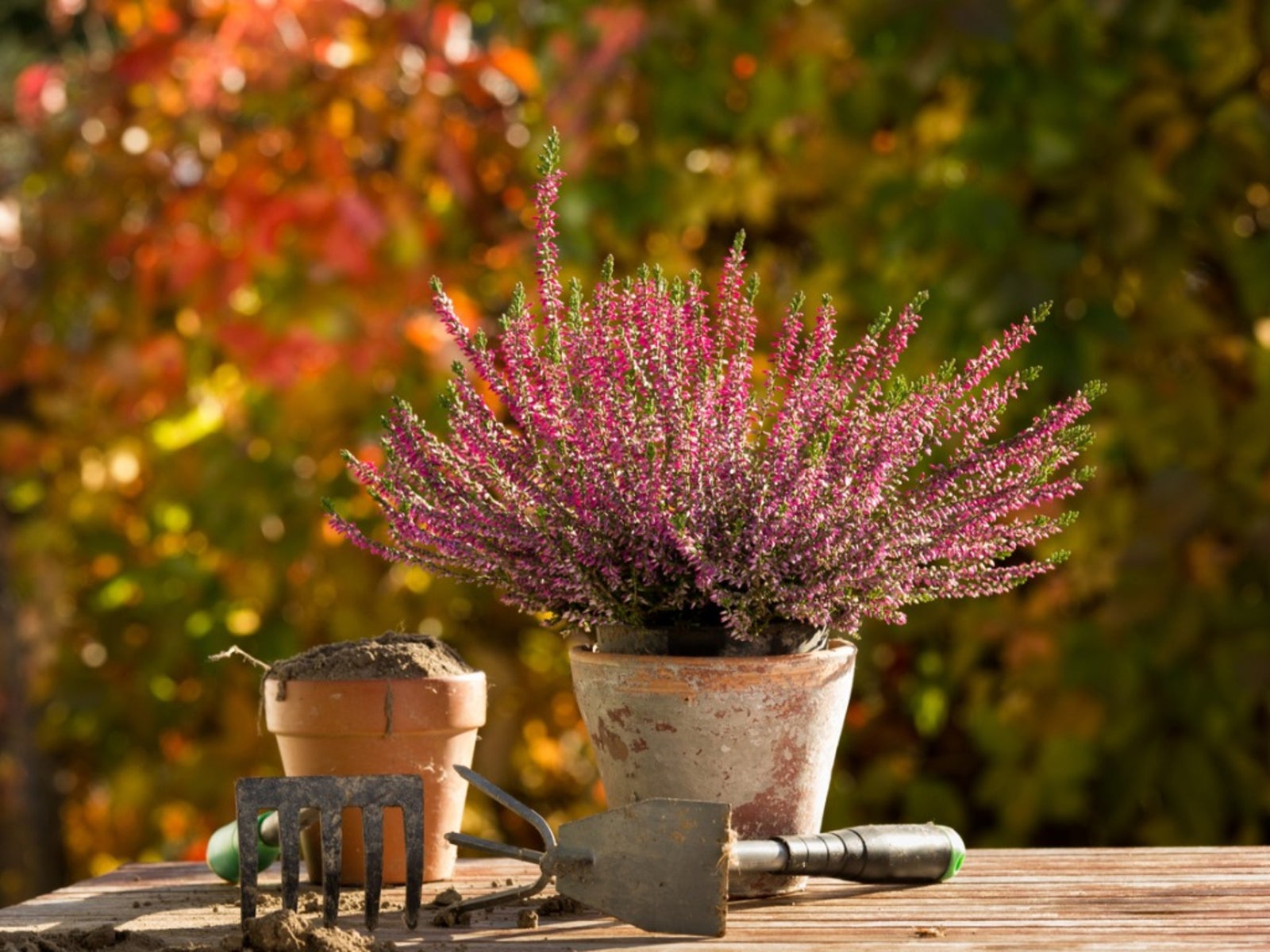Propagating Heather Plants: How Do I Propagate Heather Plants

Sign up for the Gardening Know How newsletter today and receive a free copy of our e-book "How to Grow Delicious Tomatoes".
You are now subscribed
Your newsletter sign-up was successful
Heather is a popular perennial shrub in northern gardens. This tough, little plant often blooms when it's too cold for anything else to show any color and can thrive in soil that's too acidic for most other plants. Heather fits into many small corners in the landscaping design, but buying a number of plants can be expensive. Heather plant propagating is relatively simple, if quite slow. Propagating heather plants can be done in a variety of different ways, depending on how many plants you want to produce.
Heather Seed Propagation
If your experimental gardener's mind is wondering, “How do I propagate heather with seeds?”, you should take a look at the likely results before starting the project. Like many other woody plants, heather will not reproduce true to the parent plant with seeds. This means that your seeds will produce some sort of heather, but there's no guarantee what it will look like. The height of the plant, its spread, and even the color of the flowers is completely random. If you like that sort of mystery in your plants, then heather seed propagation is for you. Heather sprouts best after a wildfire, so you need to prepare the seeds to imitate these conditions. Place the seeds on a tray and place them in a 250 degree F. (121 C.) oven for 30 seconds. This is hot enough to begin the germination process, but not hot enough to damage the seed germ. Some growers have a theory that smoke helps with sprouting heather seeds, so place them in a smoker, if you have one, for about two hours. Sprinkle the seeds on a tray full of potting soil and cover them with a fine dusting of the soil. Moisten the soil with a spray bottle and place it in a warm spot away from direct sunlight. Keep the soil moist and be patient, as heather seeds can take up to six months to germinate.
Rooting Heather Cuttings
Rooting heather cuttings is the easiest way to produce a moderate amount of plants that will be exact clones of the parent plant. This gives you the most control in your propagation plan, as you can decide exactly how many plants you want to grow, as well as what the final plant will look like. Cut the tips from branches about 6 inches (15 cm.) long, using flexible branches from last year's growth. Remove the leaves and dead flowers from the bottom half of the stem. Using a forsythe pot will make propagating cuttings easier. Fill a 4-inch (10 cm.) terra cotta pot halfway with sand. Place an inch (2.5 cm.) of compost in the bottom of a 6-inch (15 cm.) pot. Place the smaller pot into the larger one and fill the space in between with more compost. Poke pencils in the compost around the ring, and place a heather cutting in each hole. Water the compost completely to soak it and pack the cuttings into place. Add water to the sand in the middle pot to add more moisture to the mix. Place the pots into a plastic bag and twist-tie it shut. Place the pot in a spot where direct sunshine won't hit it, such as under a bush, and leave it for several months until the cuttings begin to produce roots. Transplant the rooted cuttings when they begin to produce new green growth on top.
Sign up for the Gardening Know How newsletter today and receive a free copy of our e-book "How to Grow Delicious Tomatoes".